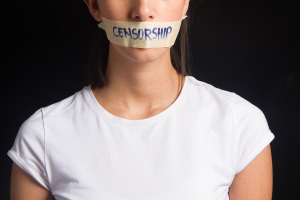Hawaii Wants to Ban Sunscreen to Protect Coral Reefs
It turns out that sunscreens can be harmful to coral reefs, so the government of Hawaii is doing something about it.
The Hawaiian state legislature recently passed a bill that would prohibit the sale of sunscreens that contain the chemicals oxybenzone and octinoxate, which research proved are toxic to coral reefs.
Even in the smallest of doses, these chemicals can also cause viral infections that lead to coral bleaching. This is why it is alarming to know from an estimate from 2015 that whopping 14,000 tons of sunscreen actually make it to the oceans.
The fate of the bill lies on Hawaii governor David Ige. In the next month or so, official details should be provided. Needless to say, sunscreen manufacturers are using the time to make sure that bill is not passed.
The Hawaii Medical Association is looking to do more research with regards to the link between the sunscreen and coral bleaching before they agree to remove their sunscreen products that are also shown to prevent skin cancer.
"This measure represents a small step towards ensuring greater resilience in our coral reefs and nearshore waters. With the overarching threats of climate change and a growing population base, it is incumbent upon the state and its residents to ensure that our foundational nearshore resources are sufficiently resilient, to best withstand the inevitably increasing pressures that will be placed upon them," Hawaii Medical Association wrote in their formal statement.
A trade group by the name of Consumer Healthcare Products Association shares the same opinion, responding with their own statement that the government should be looking into climate change, which is deemed the biggest threat to the coral reefs instead of putting their efforts on banning sunscreens, which have their own advantages as well.
Indeed, banning sunscreens does not look like anything major when considering the bigger picture, but as Futurism argues, the bill, when passed, should do wonders, especially since oxybenzone and octinoxate in sunscreens have been proven to be major stressors to the coral reefs.
The ban on sunscreens also does not mean people who need it will not be able to use it. There are products that do not have the harmful chemicals that still get the job done.
The proposed Hawaii ban will not cover prescription sunscreens for people who need them to treat their serious skin conditions.
Governments from around the world have been trying to find ways to preserve and restore coral reefs. Just recently, Australia pledged 500 million Australian dollars to secure the future of one of the most beautiful natural wonders of the world.
Early this year, Florida Aquarium's Center for Conservation has adopted a technique developed by Horniman Museum researcher Jamie Craggs that allows artificially boosting the natural spawning cycle of corals by reproducing specific climatic conditions in the laboratory.
The idea is to "trick" corals into reproducing once a month instead of annually, which is how long it naturally takes when there's a fine balance of water temperature, lunar cycle and other environmental factors.
Should the Hawaii governor approve the sunscreen ban, it will take effect o Jan. 1, 2021.




























